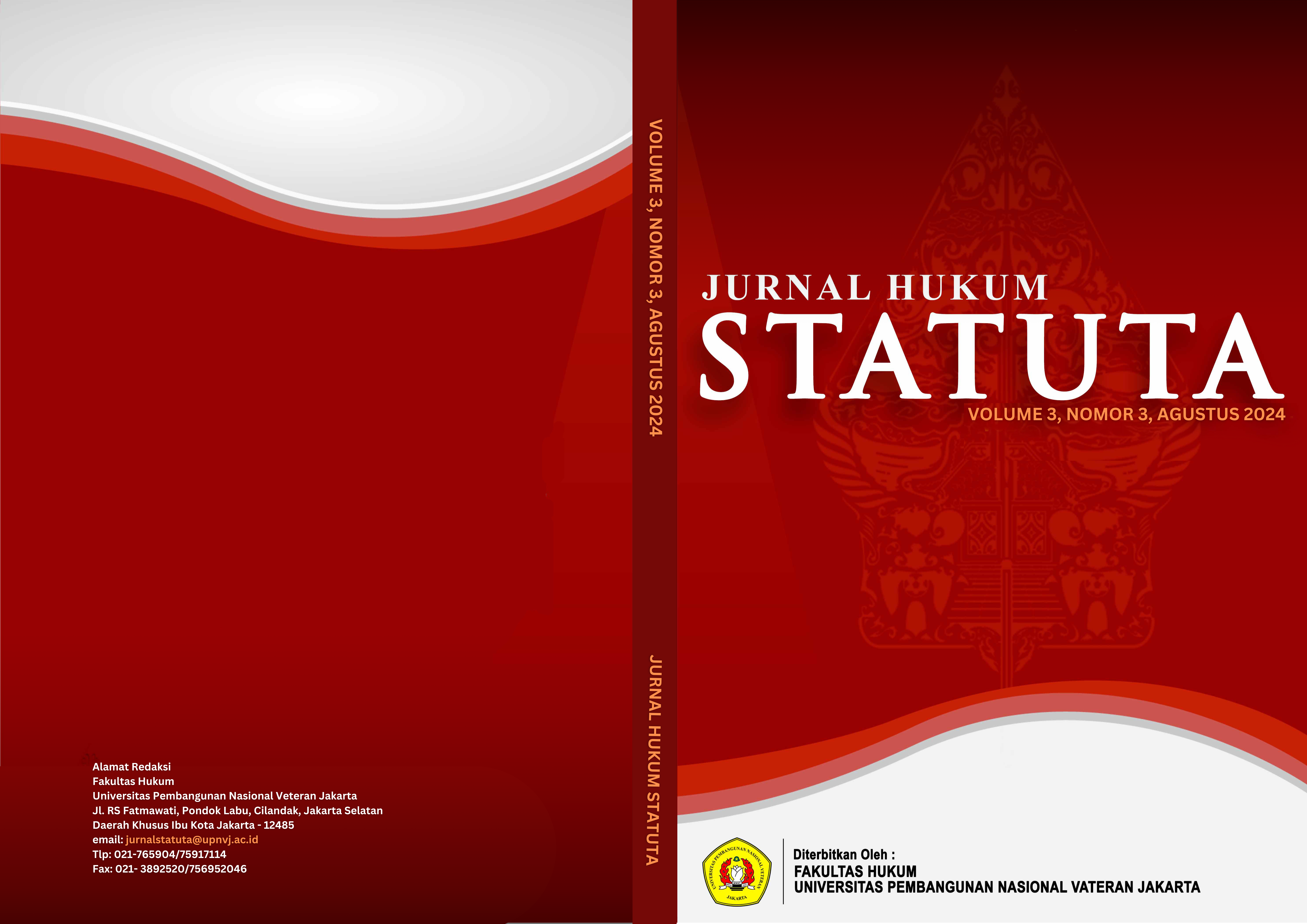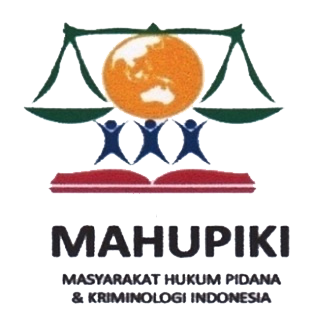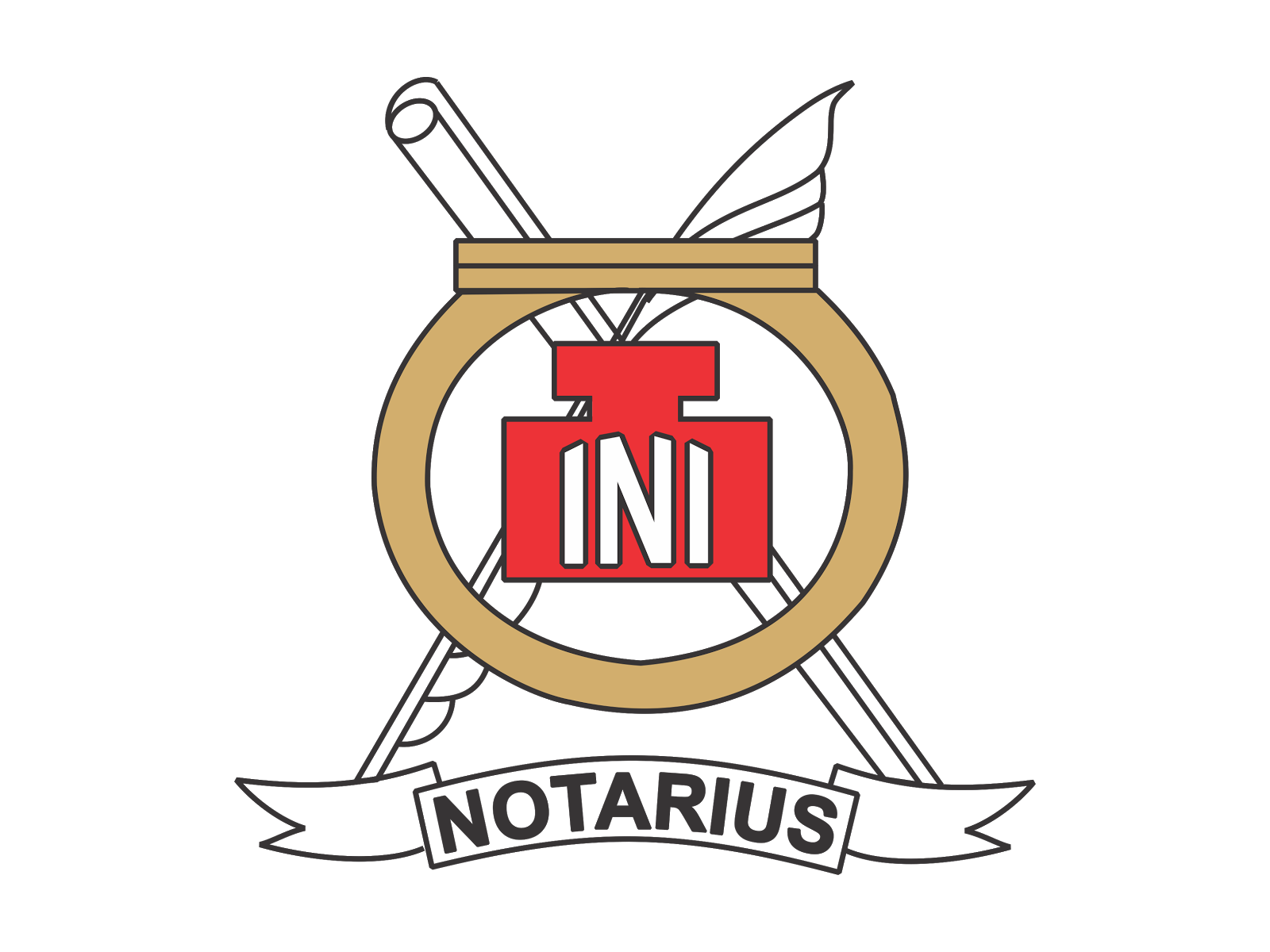TRANSFORMASI HUKUM PERUSAHAAN: PENDEKATAN BARU MELALUI BLOCKCHAIN DALAM PENYELESAIAN KASUS KEPAILITAN DI INDONESIA
DOI:
https://doi.org/10.35586/jhs.v3i3.9428Keywords:
Corporate Law Transformation, Blockchain, Bankruptcy Case ResolutionAbstract
The current corporate legal system in Indonesia still relies on manual and traditional processes for resolving bankruptcy cases. This often results in convoluted, inefficient, and non-transparent procedures. This study aims to explore the potential transformation of corporate law in Indonesia through the application of blockchain technology in bankruptcy case resolution. This research employs normative legal research methods with a juridical-normative approach. Data is collected through literature studies and legislation. The study finds that blockchain technology has the potential to transform corporate law in Indonesia by enhancing efficiency and transparency in bankruptcy case resolution, increasing the security and reliability of data related to bankruptcy cases, and facilitating better collaboration and communication among the various parties involved in the bankruptcy resolution process. The implementation of blockchain technology in resolving bankruptcy cases in Indonesia can provide significant benefits to the involved parties, including debtors, creditors, and judges. Therefore, further studies and concrete efforts are needed to realize the potential transformation of corporate law
References
Aditya, Kukuh Leksono Suminaring. “Dapatkah Aset Kripto Jadi Alat Pembayaran Utang Dalam Kepailitan.” Hukumonline.Com, 2022.
Andria, Marchelia, Hadi Subhan, and Kukuh Leksono Suminaring Aditya. “Eksekusi Aset Non-Fungible Token (NFT) Sebagai Boedel Pailit Dalam Hukum Kepailitan Indonesia.” Universitas Airlangga, 2023. https://all.fh.unair.ac.id/index.php?p=show_detail&id=23033.
Aulia, Faiq Rizqi. “Peningkatan Keamanan Dalam Pelayanan Perbankan Melalui Penggunaan Blockchain.” CTRL UGM, 2021. https://ctrl.law.ugm.ac.id/2021/03/25/peningkatan-keamanan-dalam-pelayanan-perbankan-melalui-penggunaan-blockchain/.
Dimas, Muhammad. “Trend Penerapan Blockchain Dalam Meningkatkan Keamanan Informasi Digital.” researchgate.net (n.d.). https://www.researchgate.net/publication/370073889_Trend_Penerapan_Blockchain_dalam_Meningkatkan_Keamanan_informasi_Digital.
Erbaviantha, Brigita Vegy. “Deteksi Dini Krisis Keuangan Di Indonesia: Determinan Makro Ekonomi Tahun 1996-2013.” Jurnal Ilmiah Mahasiswa FEB 3, no. 2 (2015).
Fachri, Ferinda K. “Mengenal Blockchain, Teknologi Baru Yang Ramai Dibincangkan.” Hukumonline.Com, 2023. https://www.hukumonline.com/berita/a/mengenal-blockchain--teknologi-baru-yang-ramai-dibincangkan-lt6477913f15cb9/.
Harityanto, Harityanto. “Bitcoin Sebagai Aset Debitor Pailit Dalam Hukum Kepailitan Di Indonesia,.” Jurnal Masalah Masalah Hukum 51, no. 3 (2022).
Online, Binus University. “Blockchain: Pengertian, Manfaat, Dan Cara Kerjanya.” Online.Binus.Ac.Id, 2022. https://online.binus.ac.id/2022/07/18/pengertian-blockchain-serta-manfaat-dan-cara-kerjanya/.
Pratama, Bambang. “TEKNOLOGI BLOCKCHAIN DAN MATA UANG KRIPTO SEBAGAI PEMICU TANTANGAN HUKUM DI MASA DEPAN,” 2018. https://business-law.binus.ac.id/2018/02/28/teknologi-blockhain-dan-mata-uang-kripto-sebagai-pemicu-tantangan-hukum-di-masa-depan/.
Rahardja, Untung, Qurotul Aini, Muhammad Yusup, and Aulia Edliyanti. “Penerapan Teknologi Blockchain Sebagai Media Pengamanan Proses Transaksi E-Commerce.” Journal Of Cumputer Engineering, System and Science 5, no. 1 (2020).
Ramadhan, Muhammad Dafa Razwa. “Perspektif Hukum Terhadap Cryptocurrency Sebagai Boedel Pailit.” Universitas Lampung, 2023. http://digilib.unila.ac.id/76712/.
Ray, Shaan. “Blockchains versus Traditional Databases.” Towardsdatascience.Com, 2018. https://towardsdatascience.com/blockchains-versus-traditional-databases-e496d8584dc.
Rodeck, David. “Understanding Blockchain Technology.” Forbes.Com, 2023. https://www.forbes.com/advisor/investing/cryptocurrency/what-is-blockchain/.
Suryawijaya, Tito Wira Eka. “Memperkuat Keamanan Data Melalui Teknologi Blockchain.” Jurnal Studi Kebijakan Publik 2, no. 1 (2023).
“Blockchain.” Wikipedia, n.d. https://en.wikipedia.org/wiki/Blockchain.
Downloads
Published
How to Cite
Issue
Section
License

This work is licensed under a Creative Commons Attribution-ShareAlike 4.0 International License.
Authors who publish with this journal agree to the following terms:
- Authors retain copyright and grant the journal right of first publication with the work simultaneously licensed under a Creative Commons Attribution-ShareAlike 4.0 International License that allows others to share the work with an acknowledgement of the work's authorship and initial publication in this journal.
- Authors are able to enter into separate, additional contractual arrangements for the non-exclusive distribution of the journal's published version of the work (e.g., post it to an institutional repository or publish it in a book), with an acknowledgement of its initial publication in this journal.
- Authors are permitted and encouraged to post their work online (e.g., in institutional repositories or on their website) prior to and during the submission process, as it can lead to productive exchanges, as well as earlier and greater citation of published work (See The Effect of Open Access).
Jurnal Statuta have CC-BY-SA or an equivalent license as the optimal license for the publication, distribution, use, and reuse of scholarly work.
In developing strategy and setting priorities, Jurnal Statuta recognize that free access is better than priced access, libre access is better than free access, and libre under CC-BY-SA or the equivalent is better than libre under more restrictive open licenses. We should achieve what we can when we can. We should not delay achieving free in order to achieve libre, and we should not stop with free when we can achieve libre.
You are free to:
- Share — copy and redistribute the material in any medium or format
- Adapt — remix, transform, and build upon the material for any purpose, even commercially.
The licensor cannot revoke these freedoms as long as you follow the license terms.

Jurnal Statuta licensed under a Creative Commons Attribution-ShareAlike 4.0 International License.











